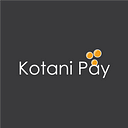Digital Public Goods : What are they and why are they Important?
Technology is evolving exponentially and its impact can be felt and seen in the world. This is primarily because the function of technology has grown over the years from making life easier to becoming a problem solver for economic, social, and political challenges.
Inventions such as mobile money, blockchain, and digital money have brought more financial inclusion to developing countries. On the other hand, social media has brought the world together with instantaneous communication. We see apps and software that are contributing to protecting human rights. Politically, we are seeing more countries adapting to a digital way of registration and voting in order to enhance transparency. All this is happening in the Web2 era.
As we usher in Web3, there is demand for a decentralized internet where information is open for the users. Open data, open artificial intelligence models, open-source software, and open content are key to unlocking a more equitable world. Open technology comes with an array of benefits such as independence and freedom, flexibility and participation from users. Oversight also becomes easier for relevant authorities in fighting corruption and data security.
Digital Public Goods (DPGs)
The DPGs are a response to a need for global digital cooperation to unlock a more equitable world. They consist of open source software, open data, open artificial intelligence models, open standards, and open content as a way to achieve the Sustainable Development Goals ( SDGs). The multi-stakeholder platform comprises organizations sharing the same vision of facilitating the discovery, development, use, and investment of the DPGs in low and middle-income countries. The Digital Public Goods Alliance (DPGA) is co-hosed by UNDP, UNICEF, and the Norwegian Agency for Development Cooperation( Norad) who ensure that the platform is well resourced and staffed to achieve its mission.
For the DPGA to function, it is guided by a roadmap that acts as coordination, alignment, engagement, and communication tool that capture DPGA members’ activities. This is with a focus on achieving the five-year strategic objectives. The DPGA has made significant efforts into ending poverty, improving the lives of everyone, and protecting the planet as a response to the universal call. How is DPGA able to achieve social and developmental changes using the DPGs? Let’s start by understanding why DPGs are important in attaining the SDGs.
Importance of DPGs
Digital divides are caused by low digital literacy, lack of physical access to technology, and geographical restrictions among other reasons. In an information society, limited access to digital resources contributes most to the deep divide and inequality. The digital divide comes in three forms, the gender divide, universal divide, and social divide. The impact of this is isolation, educational barriers, discrimination, and inequality in accessing goods and services which is a major setback for development in many countries as it inhibits investment in various industries.
DPGs counteract the limited access to information and technology which lessens the digital disparities. They have three characteristics; they are non-rivalrous, globally available, and non-excludable. Its adaptability, accountability, and interoperability features result in some of these benefits;
- Digital Participation
DPGs tend to be open to their users and donors, this nature makes it possible for them to foster equitable global partnerships of international cooperation. With its accessibility and openness, the DPG serves as a communication hub where stakeholders can track the progress of projects and are included in the decision-making process.
2. Digital Sovereignty and trust
Trust in the digital space has been severely compromised due to privacy breaches. Individuals’ information is used for cooperation and other entities’ gain. Most people and governments feel like they have no control over their data mainly because the platforms used are hosted in other countries. This means no control over their privacy, laws, and corporate regulations. Digital sovereignty is the ability to control your digital data.
The quest for digital sovereignty is a goal shared by companies, governments, internet users, citizens, and consumers. The open nature of DPGs increases oversight on how digital tools host and exchange individual sensitive and personal data. When individuals can see how their data is used and shared and have a say or form of control over how it’s used, there is more trust between countries and digital platforms.
3. Saves resources and enables scaling up
The open-source nature of DPGs leaves room for solutions to be built on thus reducing the financial cost of scaling up and saving on time. The adaptable technologies cut costs for lower-income countries. People can modify and share because of its public accessibility. For donors, DPGs have proven to be lifesaving and cost-effective as it reduces duplication and inefficiency of investing in multiple solutions by bringing one solution that serves multiple purposes. Also, any user can collaborate in a DPG and share best practices.
4. Adoptability and adaptability
A DPG solution can be adopted by another organization or government and adapted to the particular needs of the other entity. Due to the open-source nature, DPGs don’t lock users of the digital solutions to one technology vendor but rather leave it open for comparability.
The Kotani Pay DPG journey
To be considered a DPG, the DPGA has established nine baseline requirements that must be met. These guidelines complement the nature of the digital solutions and are of relevance in meeting the 2030 SDGs. The DPG standard is an open project and contributions for collaborations with experts and organizations.
Kotani Pay has achieved eight of the nine requirements and is remaining with platform independence in order to be called a DPG. This will make it possible for governments and other entities to build on our platforms and make sustainable and innovative solutions for themselves. Doing this will help us meet SDG 1, to end poverty in all forms, and SDG 10, to reduce inequalities among others.
Become a Kotani Pay insider. Get the latest news and product updates conveniently in your inbox.
